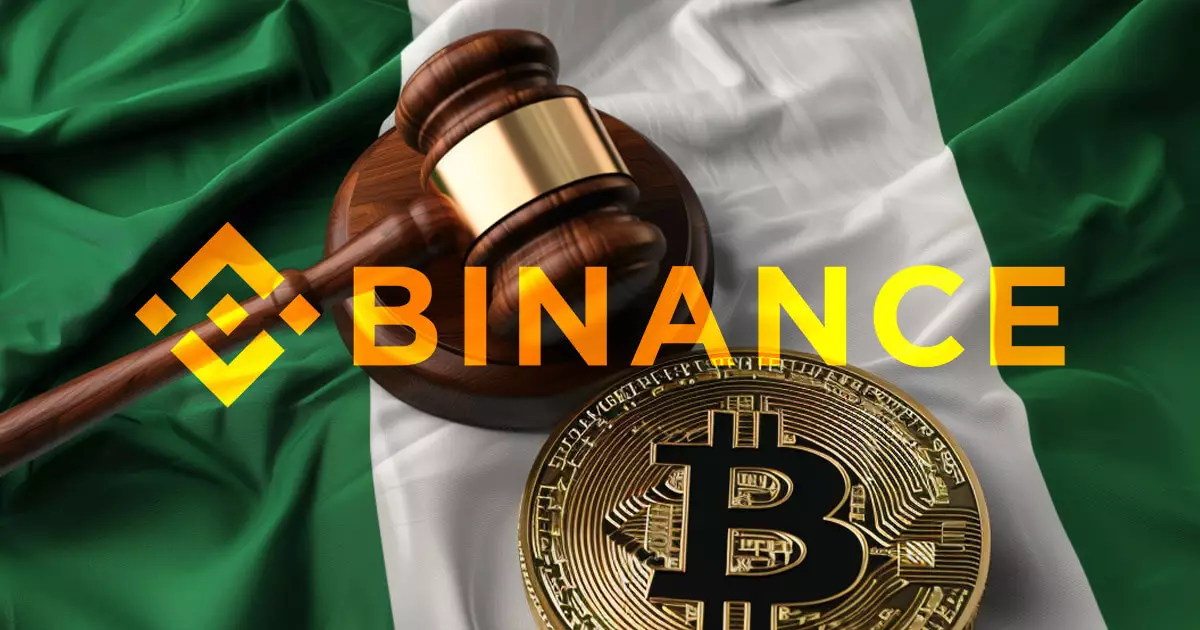In a significant development for the cryptocurrency sector, the Nigerian government has officially withdrawn all charges against Tigran Gambaryan, an executive with Binance Holdings. This decision, announced on October 23 by the Economic and Financial Crimes Commission (EFCC) at the Federal High Court in Abuja, marks the end of a distressing legal saga that began with Gambaryan’s detention in February 2024. The conclusion of this case holds implications not just for Gambaryan, but also for the broader relationship between cryptocurrency entities and regulatory bodies within Nigeria.
Gambaryan’s legal team, led by attorney Mark Mordi, emphasized the notion that he was merely an employee at Binance and could not be held accountable for the alleged financial actions of the organization. The EFCC supported this assertion, arguing that the executive was not involved in the company’s financial decisions at a high level. This clarification was central in persuading Justice Emeka Nwite to approve the dismissal of the case, effectively liberating Gambaryan from what has been described as an eight-month ordeal.
The circumstances surrounding Gambaryan’s detention were fraught with tension. Upon his arrival in Nigeria, he and a colleague, Nadeem Anjarwalla, were meeting with government officials, having been accused of exacerbating foreign exchange volatility related to the nation’s local fiat currency. While Anjarwalla managed to escape detainment earlier this year, Gambaryan faced prolonged scrutiny. This situation became increasingly dire, especially as advocacy efforts by Binance and external pressures from the U.S. government failed to secure his release.
A coalition of 18 U.S. attorneys general even reached out to President Joe Biden and Secretary of State Antony Blinken, suggesting that Gambaryan be regarded as a hostage held for the purpose of extorting monetary concession from Binance. Such international advocacy reflects the heightened geopolitical stakes tied to the evolving nature of cryptocurrency regulation across borders. These interventions stemmed from growing concerns within the crypto community, particularly as Gambaryan’s health faltered during his time in custody, with reports of malaria, pneumonia, and other serious conditions leading to his confinement in a wheelchair.
The outcry from crypto advocates highlights an urgent need for clearer regulatory frameworks that can safeguard executives while promoting the innovative potentials of digital currencies. The implications of this case extend beyond Gambaryan, resonating throughout the cryptocurrency ecosystem, which is under increasing international scrutiny. The decision to drop the charges could potentially signal a shift in Nigeria’s approach towards cryptocurrency operations, particularly in terms of fostering a more welcoming environment for foreign entities.
Given the global landscape of cryptocurrency, where regulatory environments vary significantly from one region to another, Gambaryan’s case serves as a cautionary tale for those operating in jurisdictions that may have unclear or hostile regulatory frameworks. As the dust settles, it will be crucial for stakeholders—both governmental bodies and cryptocurrency firms—to engage in more open dialogue to address concerns about currency stability while recognizing the economic benefits of embracing blockchain technology.
As the legal chapter for Tigran Gambaryan closes, the broader narrative of cryptocurrency’s future in Nigeria and beyond remains unwritten, waiting for stakeholders to collaborate towards more equitable and constructive relationships.















